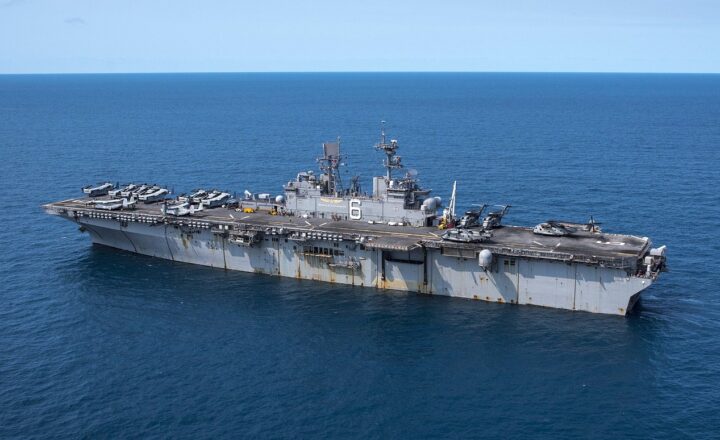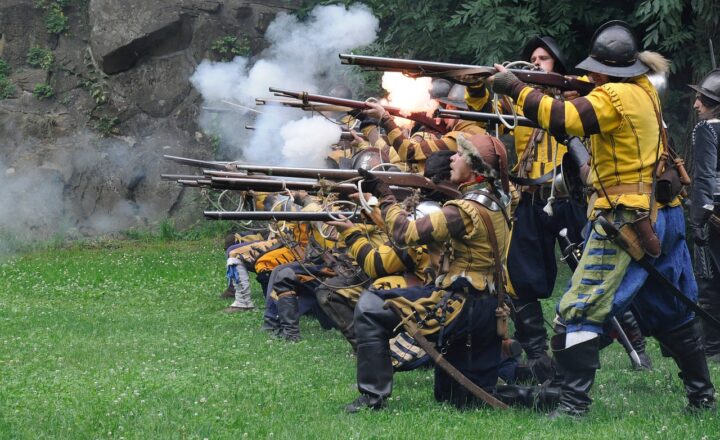The Role of Special Forces in Shaping the Outcomes of Critical Military Missions
November 16, 2024

Special Forces have long been an integral part of military operations, engaging in missions that often define the outcomes of conflicts around the world. From counter-terrorism to hostage rescue, their operational flexibility, advanced training, and unique skill sets place them at the forefront of modern warfare. Their influence extends beyond the battlefield, shaping policies and military strategies that can change the course of history.
1. Understanding Special Forces: Definition and Structure
The term “Special Forces” refers to military units trained to conduct and support special operations. These units are tasked with unconventional missions, often requiring a high level of skill in areas such as intelligence gathering, reconnaissance, and direct action. Their operations can be broken down into the following categories:
- Direct Action (DA): Engaging in lethal operations against enemy targets to eliminate threats or gather intelligence.
- Counterterrorism (CT): Specialized operations designed to prevent or respond to terrorist activities.
- Reconnaissance: Gathering intelligence about enemy positions and capabilities in hostile environments.
- Unconventional Warfare (UW): Supporting indigenous forces in conducting irregular warfare against a conventional adversary.
Special Forces are typically organized in small, highly trained teams, which provide them with the agility and adaptability necessary for their missions. Their operations often occur in high-stakes environments, where the success or failure can have profound implications.
2. The Historical Context of Special Forces Operations
The history of special operations can be traced back to ancient times; however, the modern concept of Special Forces emerged during World War II. The formation of units like the British Commandos and the U.S. Army Rangers laid the foundation for future Special Forces operations. Significant events like the Vietnam War showcased their effectiveness, leading to increased investment and expansion of these elite units.
Since then, Special Forces have been involved in numerous pivotal events throughout history:
- Operation Eagle Claw: The failed attempt to rescue hostages in Iran in 1980, highlighting the need for improved interagency collaboration and tactics.
- Operation Neptune Spear: The successful mission to eliminate Osama bin Laden in 2011, showcasing the effective use of intelligence, planning, and execution that characterizes Special Forces operations.
- Global War on Terror: Involvement in various operations across Afghanistan and Iraq, where they played a crucial role in counter-insurgency efforts and building local partnerships.
These examples illustrate how Special Forces have shaped military strategies and operations across different conflicts.
3. Key Factors that Contribute to Effective Special Operations
To understand how Special Forces shape the outcomes of critical military missions, it’s vital to examine the factors that contribute to their effectiveness:
- Advanced Training: Special Forces personnel undergo rigorous training that includes physical conditioning, tactical skills, language proficiency, and cultural awareness. This training equips them to operate in diverse environments and circumstances, allowing them to blend in seamlessly with local populations or respond to unique threats.
- Intelligence Integration: A significant part of the success of Special Forces missions lies in their ability to gather and analyze intelligence. By working closely with intelligence agencies, they can better understand the operational environment, enemy tactics, and potential vulnerabilities.
- Joint Operations: Collaboration with other military branches and international forces allows Special Forces to integrate resources, share knowledge, and leverage the strengths of different units. This cooperation increases the chances of mission success while minimizing risks to personnel.
- Adaptability and Flexibility: The dynamic nature of modern warfare often requires Special Forces to think creatively and adjust to evolving situations. Their experience enables them to make real-time decisions that can change the course of an operation quickly.
These key factors outline the competencies that set Special Forces apart and enable them to achieve significant outcomes in their missions.
4. Special Forces in Counterterrorism: A Critical Role
Counterterrorism represents one of the primary missions for Special Forces worldwide. The growing threat of global terrorism requires swift and decisive action to protect national interests and civilian lives. Special Forces have demonstrated their effectiveness in numerous operations against terrorist organizations:
- Rapid Response Teams: Special Forces can deploy quickly to respond to terrorist threats, often before they escalate. Their rapid deployment capability has proven effective in neutralizing imminent threats and gathering intelligence to prevent future attacks.
- Targeted Operations: Through careful intelligence gathering and analysis, Special Forces can identify and eliminate key terrorist leaders. This targeted approach disrupts the organizational structure of these groups and diminishes their operational capabilities.
- Training Local Forces: Special Forces frequently engage in training and equipping local forces to combat terrorism. This build-up of local capability is essential for sustained counterterrorism efforts, promoting stability in regions affected by extremist threats.
Through these roles, Special Forces are at the forefront of a global response to terrorism, directly impacting the security landscape worldwide.
5. The Challenges Faced by Special Forces
Despite their successes, Special Forces face several challenges that can complicate mission outcomes:
- Complex Political Environment: Special Forces often operate in regions with intricate political landscapes. Aligning with local factions can be risky and could affect overall mission success if not managed well.
- Hostile Terrain: Missions may require operations in challenging terrains, whether urban settings, mountains, or jungles. Adapting to and mastering these environments is crucial for the safety of operators and mission efficacy.
- Resource Constraints: Budget limitations can result in inadequate training and equipment, which may impair operational effectiveness. Ensuring that Special Forces have access to the resources necessary for success is crucial for maintaining their edge in the field.
These challenges highlight the complexity of modern Special Forces operations and the need for continual adaptation and support from higher military commands to ensure mission success.
6. Conclusion: The Lasting Impact of Special Forces
The impact of Special Forces on military missions is profound and multifaceted. Their unique capabilities allow them to shape military strategies, influence policies, and carry out operations that have far-reaching consequences. As contemporary conflicts continue to evolve and the nature of warfare changes, the role of Special Forces will likely remain critical in shaping the outcomes of critical military missions.
By effectively adapting to new threats and refining their approaches, Special Forces will continue to be a cornerstone of national defense, ensuring the safety and security of citizens worldwide.







